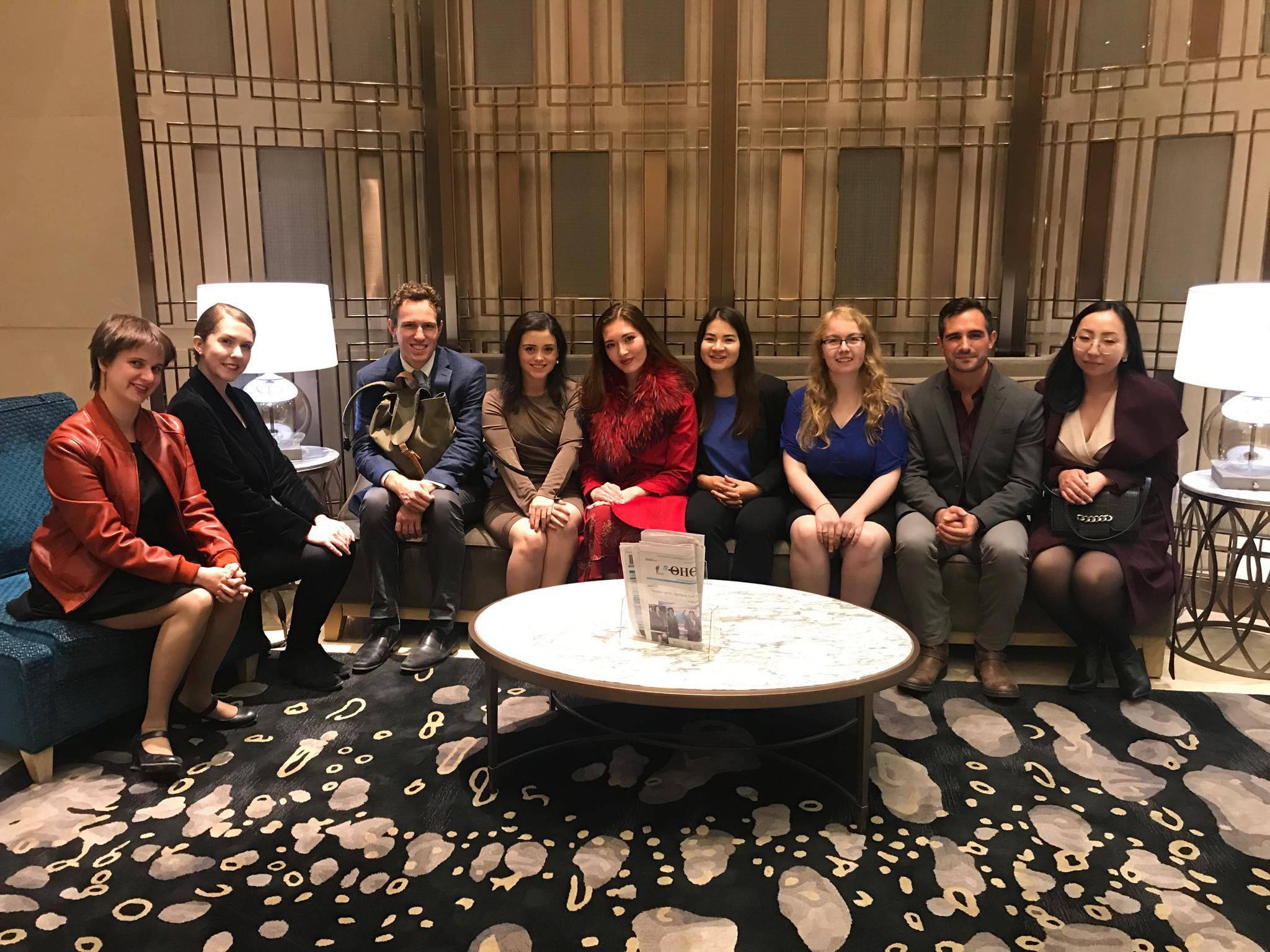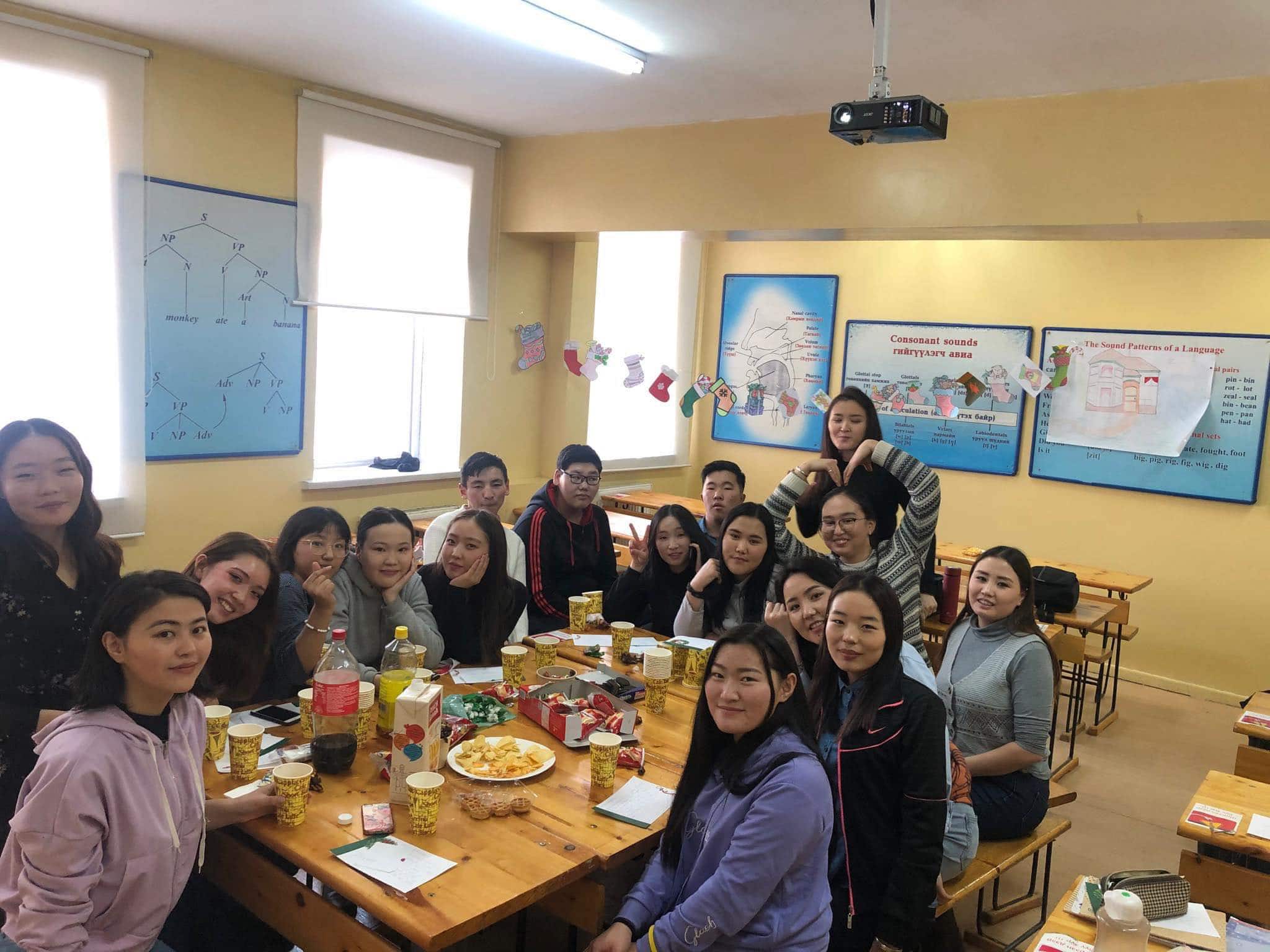
The Fulbright English Teaching Assistantship (ETA) is a year-long opportunity for recent United States graduates to teach English abroad and experience the culture of another country. With a focus on personal diplomacy, the Fulbright ETA program places fellows in schools where they offer English language support to classrooms. The flexibility of the ETA program allows for fellows to design much of their own experience outside of the classroom – such as organizing after-school clubs, taking language classes or joining a local sports club. The program is available in over 140 countries around the world.
We talked to Jenny Simon, a current Fulbright ETA in Mongolia, to learn more about the program and get some application tips.
1. What inspired you to apply for the Fulbright ETA in Mongolia Fellowship?
I was drawn to Mongolia for both personal and academic reasons. My best friend from college is originally from Ulaanbaatar, Mongolia. Hearing about her adventures, her family, and her vivid descriptions of Mongolia’s cities and countryside endeared me to a country I knew very little about. This led me to do more research on Mongolia, but I quickly realized that within my own field of Asian Studies, Mongolia is overshadowed by other Asian countries and is, unfortunately, very understudied. Because my research interests revolve mainly around Chinese literature and culture, learning about Mongolia—its culture, its history, its language—is incredibly valuable to me and my research, as China and Mongolia share a deep yet highly complex relationship. I decided to pursue an ETA in order to gain more teaching experience while taking advantage of the opportunity to work closely with Mongolian students and teachers; this has allowed me to simultaneously learn about Mongolia through their perspectives as well as my own.

2. What have been some of the most eye-opening moments during your fellowship?
As an English co-teacher, I work alongside a Mongolian counterpart in the classroom, and I have about eighty students in total. I had ample experience as a college teaching assistant and as a tutor before starting my fellowship, but actually being a teacher is entirely different. Though I expected the lesson planning, grading, holding office hours, and other teaching duties, I never expected to become so invested in my students. When they are willing to share, I talk with them about their passions, their pet-peeves, their worries, and their dreams. And soon, each name on the attendance roster was not just a name anymore but was a representation of that student—their fashion style, their favorite food, their dream job. Sometimes, it can be frustrating when students do not do their homework, because I see so much potential in them and feel like I need to push harder. It is also very hard for me when I see a student struggle or feel that a class did not go perfectly, because I feel like I have failed as a teacher. This has made me more aware of the realities of teaching and what I am like as a teacher. It has also made me realize how much I truly enjoy teaching.
Outside my teaching and Fulbright duties, my experiences in Mongolia have been beyond what I had expected in every way imaginable. I had expected Mongolia to be very similar to other East Asian countries; however, it is often very different. There is a strong Russian and Chinese influence in Mongolia, including the food, language, and culture. In terms of media, it is very similar to the United States. Many people use American social media, watch American movies and TV shows, and listen to popular American songs. Mongolia also imports most of its products, so supermarkets have a mix of Mongolian, Chinese, Korean, German, Japanese, and American brands and items. Despite the prevalence of cultural influence from other countries, Mongolia maintains much of its traditional culture, which is reflected in day-to-day interactions, city planning, and peoples’ beliefs. It has been very interesting to experience old and new and native and foreign cultural elements come together here.
Living in Mongolia and participating in its culture has allowed me to do some truly unforgettable things. There are a lot of sports and arts that the other ETAs and myself have gotten involved in. Some are learning to play traditional Mongolian instruments; some frequently go to the country for hiking and horseback riding; I have started to train in contortion. Mongolia is considered to be the birthplace of contortion, which is something I learned upon arriving. I have always loved gymnastics and acrobatics, so I was very excited to learn that one of my personal interests aligned with an activity prevalent within Mongolia. I never expected to train in contortion when I was writing my application over a year ago, but if I had known it was a possibility, I think I would have been even more eager to go. Being able to engage in a non-academic activity that is outside my teaching and Fulbright duties is refreshing, and it has been wonderful to get to connect with people I would not have otherwise gotten to meet. I have had an abundance of heartwarming, frustrating, and awe-inspiring moments. Every day is its own adventure where I learn something new.

3. What tips would you give others applying to the Fulbright ETA in Mongolia Fellowship?
The first and most important tip I have is to just do it. I was not going to apply for Fulbright because I thought I was not going to get it. I did not think I was going to get it until I got it. It is very easy to feel like you are not good enough; the application is lengthy, the wait time to hear back about your application is unbearable, and doing all this on top of your normal obligations might seem insane; however, the experience is worth it. There is so much to learn by going abroad and through the opportunities the fellowship offers. Additionally, the application process requires a lot of self-reflection, which also offers a chance to think about yourself and your goals.
During the application process, take all the criticism you can get. Hearing others’ perspectives not only helps you refine your writing, but also allows you to incorporate their knowledge, their impressions of you, and other things you otherwise would not know. This will also help your recommenders make their letters more personalized. Additionally, have reasons with evidence to explain why you want to be a teacher in Mongolia. There are many things you could do, so you must be persuasive in explaining why embarking on a Fulbright at this time is beneficial for you and the host country. Use your past experiences and your future ambitions to create a compelling argument as to why Fulbright and the host country should choose you. This experience is not only meant to benefit you, but your cohort, the host country, Fulbright, and even the United States. Think about what you will take away from your experience and how you can give back.
While all applicants for Fulbright must express a willingness and desire to engage with their host countries, it is especially true for Mongolia. Life in Mongolia can be very difficult—the winters are cold, the city is heavily polluted, and Mongolian is difficult to learn; however, it can also be very rewarding. Not many Americans know much about Mongolia, and many have not even heard of it. You will not find nearly as much information on Mongolia as you will China, so you must be willing to learn through personal experience, which sometimes means feeling uncomfortable. Fulbrighters in Mongolia should be flexible, committed, and inquisitive. You must exemplify these traits in addition to sharing what you yourself will contribute.
I believe I had many genuine and worthy reasons for wanting to go to Mongolia – the country is related to my research interests, and I have a passion for teaching. Additionally, I emphasized in my application many experiences that demonstrated my ability to teach, to adapt to a new environment, and to deal with hardships. All this coupled with help from others during the writing process is what granted me this opportunity.
Jenny Han Simon graduated Summa Cum Laude from the University at Buffalo in 2019 with a B.A. in English and Linguistics, with minors in Asian Studies, Chinese, and Education. She is currently a co-teacher at Otgontenger University in Ulaanbaatar, Mongolia.
Interested in applying? Bookmark the Fulbright English Teaching Assistantship to your ProFellow account.
© Victoria Johnson 2020, all rights reserved.